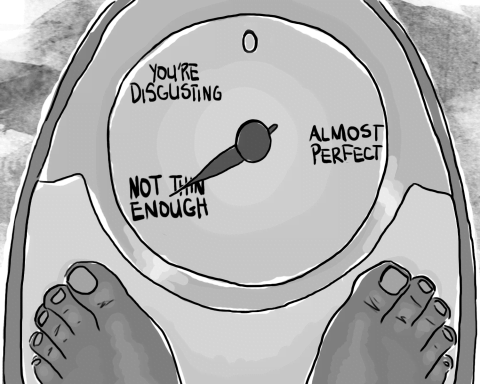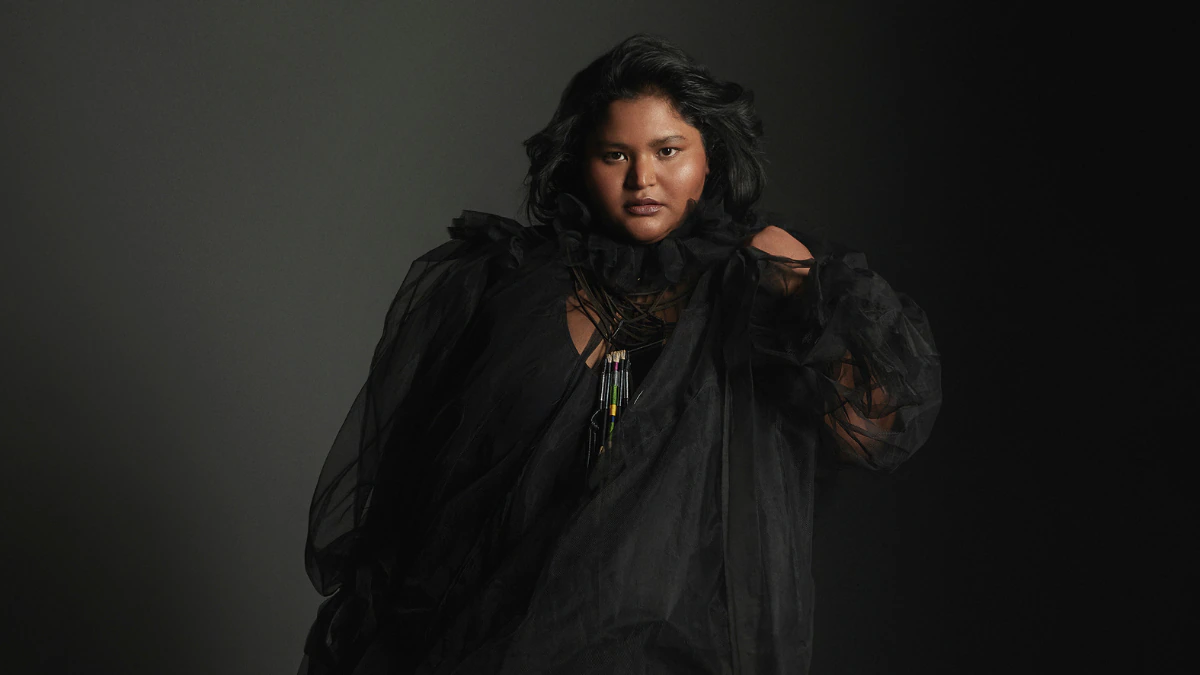What do you think when you hear “Anorexia Nervosa”? If you think of an extremely thin, white woman in the west, then you, like I used to, have been unfortunately conditioned by society, media and probably the most unfortunate of them all – medicine.
“Anorexia Nervosa, often referred to simply as anorexia, is an eating disorder characterized by low weight, fear of gaining weight, and a strong desire to be thin, resulting in food restriction”. The main criteria of Anorexia Nervosa as specified by the Diagnostic and Statistical Manual of Mental Disorders–5th edition (DSM-V) is an extremely low BMI (a BMI below 17, clinically underweight). The severity of the disease is also determined by how low the person’s BMI is, below the underweight category. While the Eating Disorder Not Otherwise Specified (EDNOS) category that allows for the inclusion of mental symptoms without the necessary aesthetic was recently included in the DSM-V, there is ample evidence that this is the most common form of eating disorder to be encountered in clinical practice but is also very poorly researched.
I would strongly argue that eating disorders are so much more than just the physical symptoms they manifest. One of the most difficult concepts a person with disordered eating habits finds hard to wrap their head around is the social currency of food. A complex relationship then develops with the sense of perfectionism and control – and all of it ends up being manifested into food and the body. Physical symptoms that are consequences of these disorders are scary, but ignoring the emotional trauma that started the ordeal will only leave a huge open scar, threatening to cause problems throughout life.
eating disorders are so much more than just the physical symptoms they manifest.
Such a typecast view is problematic in more ways than one. To begin with, it shapes the idea in the minds of caregivers that to have an eating disorder, you have to be a certain size. This excludes several people facing real, severe mental issues from getting the help they need and deserve because eating disorders are mental illnesses – not physical ones. This also does disservice to the patients who do fit into the diagnostic category, because it ends up focusing on a erroneous strategy for recovery and therapy, that the way to overcome this mental illness is to gain a satisfactory amount of weight.
Using the word “unfortunate” while describing the health policies corresponding to women’s mental health, and more specifically body issues, is a huge understatement.
Also Read: Reflections On Being A Fat Woman: My Body As The Site Of Moral Panic
The typecast view where we think of extremely malnourished people to be the only ones suffering from eating disorders only causes people to be boxed into categories of “these people can get help” and “these people aren’t sick enough”. This is extremely frustrating and agonising for some of us who already have a skewed perception of this word “deserve”. By enforcing such unrealistic standards, we’re only feeding into mindsets that there is such a thing as a true ideals – even for mental illnesses.
Society has always made judgements and associations about people based on their aesthetics (see Thorndike’s halo effect). For people above a certain weight, it might seem as if the world is stacked about them – mostly because it is. But it shouldn’t be. It shouldn’t have to be a scenario where we have to convince doctors that we need therapy for body dysmorphia. It shouldn’t be a society where we have to work twice as hard to get half as much care.
I think it’s high time we start including negative habits such as calculating self worth based on size, body dysmorphia, constant negative judgement, negative self talk, a punishment-reward cycle that centres around “unhealthful and healthful” activities and so much more in between that are more specific to the person suffering into defining eating disorders.
Solutions? For a top to bottom approach, we could start from petitioning to change the policy around how we define Anorexia Nervosa, Binge Eating Disorders, and other eating disorders. This would reflect in insurance companies which is probably one of the most supportive things that could happen in our country. This article, published in 2017, says that both social and private insurances currently do not per se cater to mental illness. As a democracy, it is our voice that should resonate the highest towards such basic necessities.
It would also go a long way into destroying the stubborn stigma against mental disorders at large. In an ideal world, we could walk into a clinic and hope that the doctor would treat us without judgement. This involves changes in the medical school education too, with more courses on nutrition and mental health that is written by experienced professionals. In a ideal world, we expect insurances to provide coverage for mental health because the statistics are just too high to keep ignoring it.
The typecast view of malnourished people being the only ones with eating disorders causes people to be boxed into categories of “these people can get help” & “these people aren’t sick enough”.
What can we do as people? Of course, becoming aware of the problem at hand and raising our voices is a good first step towards putting a full stop to the stigma. A huge boost can come if social media sheds a positive light what it means to have an eating disorder. That people of all sizes, shapes, colours, economic statuses and geographies can and do have issues with their body. Bonus points if the way it is dealt with isn’t only by losing or gaining weight. People like Megan Jayne Crabbe (@bodyposipanda), Iskra Lawrence, Mily Smith, and Vidya Balan have spoken openly about their past and it gives so much hope, but it seems like we might have to look under the magnifying glass to find these heroes.
The reality of living in a body that is probably never going to be accepted by society cannot be countered by submitting to the unrealistic rules this capitalist and diet obsessed society has created for us. It can be countered by accepting ourselves, and as I say that, I’m filled with so much self-doubt because while I know it is the right road to take, I also realise it’s the one filled with most obstacles. Let’s try to remove them, one by one.
Also Read: Living With Anorexia Nervosa And A Body That Has Suffered Enough
Featured Image Source: The Sheaf
About the author(s)
1 part Bangalore, 1 part New York, 2 parts animal lover, all parts feminist. I'm a passionate ally for fat justice and fat acceptance movement, I also like to chime into conversations about global feminism,discrimination towards people of color and sexism in science & tech.




